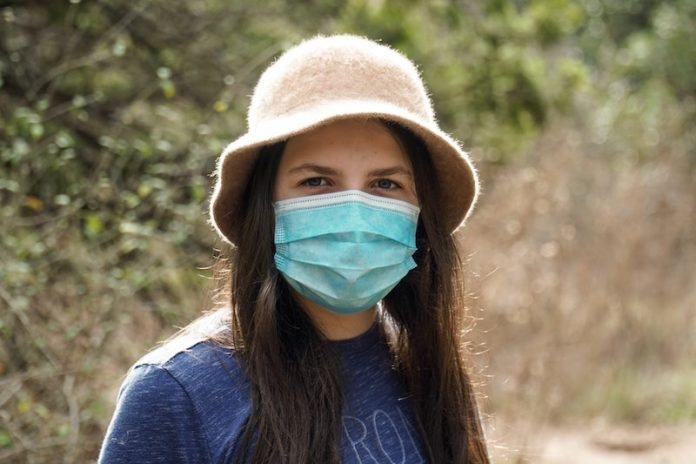
In a new study from the National Institute for Occupational Safety and Health, researchers provide guidance for increasing the effectiveness of face masks to reduce the spread of respiratory infectious pathogens including the COVID-19 virus.
They found specific face mask combinations and fit modifications that can be implemented by healthcare workers, patients, and the public to improve mask fit and performance.
Face masks are used to reduce the spread of infectious viruses such as SARS-CoV-2 that are transmitted by respiratory aerosols and droplets produced during activities such as talking, breathing, and coughing.
The U.S. Centers for Disease Control and Prevention (CDC) recommends a mask that is multi-layered, covers the nose and mouth, and forms a tight seal against the face.
The performance of face masks as devices that control infection spread depends upon both the ability of the mask material to filter aerosols and on how well the mask fits the wearer
In the study, the team used both human participants and simulator manikins to evaluate the performance of multiple mask types, combinations, and modifications.
They conducted a variety of experiments that simulated coughs and exhalations and then measured the efficiency of the masks at blocking respiratory aerosols.
Results showed that layering a three-ply cloth mask over a medical mask (double masking) or securing a medical mask with an elastic brace provided the best protection against respiratory aerosols.
Medical masks without modification blocked >56% of cough aerosols and >42% of exhaled aerosols.
Comparatively, placing a cloth mask over a medical mask blocked ≥85% of cough aerosols and ≥91% of exhaled aerosols, and adding a brace over a medical mask blocked ≥95% of cough aerosols and ≥99% of exhaled aerosols.
Using earloop toggles or an earloop strap, or knotting and tucking the mask, also increased performance as compared to medical masks without modification.
Two other mask-fit modifications, crossing the earloops or placing a bracket under the mask, did not increase performance.
The team says the study findings are important and timely.
The specific, practical combinations of face masks and mask modifications may improve mask seal and thereby effectively reduce the expulsion of infectious aerosols.
If you care about Covid, please read studies about familiar drug that could help treat COVID-19, and heart problem that strongly increases risk of severe COVID-19 and death.
For more information about health, please see recent studies about how to overcome COVID-19 pandemic fatigue, and results showing COVID-19 vaccine booster could effectively protect those 60 and older.
The study is published in the American Journal of Infection Control. One author of the study is Francoise M. Blachere, MSc.
Copyright © 2022 Knowridge Science Report. All rights reserved.



